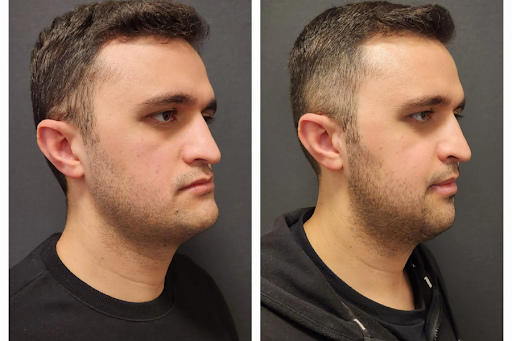Double jaw surgery, medically termed bimaxillary osteotomy, is a transformative procedure designed to correct jaw misalignments and enhance facial aesthetics. By repositioning both the upper (maxilla) and lower (mandible) jaws, this surgery addresses functional issues such as malocclusion and breathing difficulties, while also improving facial symmetry.
Understanding Double Jaw Surgery
Double jaw surgery involves surgical adjustments to both jaws to rectify skeletal and dental irregularities. It’s commonly recommended for individuals with significant jaw discrepancies that cannot be corrected through orthodontics alone. The procedure not only improves bite function but also contributes to a more balanced facial appearance.
Indications for Double Jaw Surgery
Patients may be considered for double jaw surgery if they experience:
- Malocclusion: Misalignment of teeth affecting chewing and speech.
- Jaw Discrepancies: Overbite, underbite, or open bite issues.
- Facial Asymmetry: Imbalance in facial proportions due to jaw positioning.
- Sleep Apnea: Obstructive sleep apnea resulting from jaw structure.
- Temporomandibular Joint Disorders: Chronic jaw pain and dysfunction.
These conditions can lead to difficulties in daily activities and may impact overall quality of life.
Preoperative Planning
A thorough evaluation is essential before proceeding with double jaw surgery. This includes:
- Imaging Studies: 3D X-rays and CT scans to assess jaw structure.
- Dental Impressions: Creating models for surgical planning.
- Orthodontic Treatment: Braces may be applied pre-surgery to align teeth.
Advanced planning ensures precise surgical outcomes and minimizes risks.
Surgical Procedure
Performed under general anesthesia, double jaw surgery typically involves:
- Incisions: Made inside the mouth to prevent visible scarring.
- Bone Cuts: Strategic osteotomies to reposition the jaws.
- Realignment: Adjusting the jaws to their new positions.
- Fixation: Securing bones with titanium plates and screws.
- Closure: Suturing incisions and applying necessary dressings.
The surgery duration varies but generally lasts several hours.
Recovery and Postoperative Care
Recovery from double jaw surgery involves several stages:
- Hospital Stay: Typically 1–2 days for monitoring.
- Swelling and Bruising: Peaks within 48–72 hours, subsiding over weeks.
- Diet: Initial liquid diet progressing to soft foods over 4–6 weeks.
- Oral Hygiene: Gentle brushing and antiseptic mouth rinses to prevent infection.
- Activity: Avoid strenuous activities and smoking during healing.
Full recovery and bone healing may take up to 12 months, with regular follow-up appointments to monitor progress.
Benefits of Double Jaw Surgery
Undergoing double jaw surgery can lead to significant improvements:
- Enhanced Functionality: Improved chewing, speaking, and breathing.
- Aesthetic Improvements: Balanced facial features and jaw alignment.
- Psychological Benefits: Increased self-confidence and quality of life.
These outcomes contribute to both physical health and emotional well-being
Potential Risks and Complications
As with any surgical procedure, there are risks involved:
- Infection: Managed with antibiotics and proper hygiene.
- Nerve Damage: Temporary or, rarely, permanent numbness.
- Relapse: Minor shifts in jaw position during healing.
- Anesthesia Risks: Reactions to medications used during surgery.
Discussing these risks with your surgical team is crucial for informed consent.
Choosing the Right Surgical Team
Selecting experienced professionals is vital for successful outcomes. Clinics specializing in maxillofacial surgery, such as Clinique Evoro, offer comprehensive care, from initial consultation to postoperative support. Their expertise ensures personalized treatment plans and optimal results.
FAQs:
Q1: Is double jaw surgery painful?
A1: Postoperative discomfort is common but manageable with prescribed pain medications.
Q2: Will I need braces after surgery?
A2: Orthodontic treatment may continue post-surgery to fine-tune teeth alignment.
Q3: How long before I can return to work or school?
A3: Most patients resume normal activities within 2–3 weeks, depending on individual recovery.
Q4: Are the surgical results permanent?
A4: Yes, with proper care and adherence to postoperative instructions, results are long-lasting.
Q5: Can double jaw surgery correct sleep apnea?
A5: Yes, by repositioning the jaws, the airway can be expanded, alleviating obstructive sleep apnea symptoms.
Keep an eye for more latest news & updates on Hoseasons!

